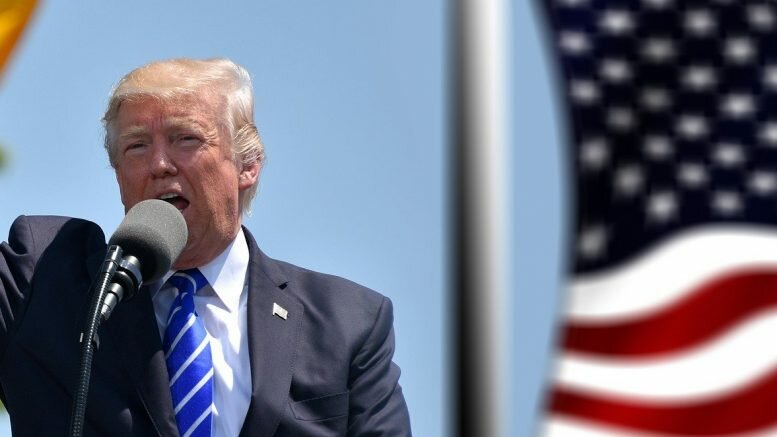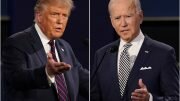Amid turmoil in the US, Donald Trump officially conceded on Thursday, January 7.
Pro-Trump rioters broke into the Capitol Building, the seat of the United States Congress, on Wednesday.
The unparalleled event disturbed people in the nation and around the world.
Then, Donald Trump officially announced his concession.
Why did it take so long? An insatiable hunger for power, a potentially narcissistic personality, a fear of lawsuits and investigations without the protections of a presidency, something else? We can only guess.
Why now? What could have been the tipping point that caused Trump to finally concede?
First, let’s look at how he announced his submission.
A social media announcement
Following the riots, Facebook and Instagram banned Trump from using the platforms.
Facebook founder Mark Zuckerberg wrote in a statement that the decision to ban Trump from the platforms and remove some of his previous posts came after “we judged that their effect — and likely their intent — would be to provoke further violence”.
Snapchat also banned Trump, while YouTube removed his video following the Capitol riots. In the video, Trump told rioters, some of whom were photographed with Confederate and Nazi paraphernalia, to “Go home”, but also, “We love you. You’re very special.”
Trump had been banned from Twitter, too. In his stead, White House Deputy Chief of Staff for Communications and Director of Social Media Daniel Scavino Jr. inititally tweeted:
But by Thursday, the 12-hour forbiddance was up and Trump was allowed to tweet again.
This time, he conceded the US Presidency to Joe Biden.
Trump stated, “Now that Congress has certified the results, a new administration will be inaugurated on January 20th.
“My focus now turns to ensuring a smooth, orderly and seamless transition of power.”
So, what was the climax that caused Trump, who just a day prior announced “We will never concede”, to, in fact, concede?
A rising riot death toll
Ashli Babbit, an Air Force veteran, died after being shot by law enforcement officers. She was hit while trying to climb through a broken window into the Speaker’s Lobby, a corridor leading to the House Chamber where Members of Congress were sheltering in place.
Three more people, a woman and two men, died of “other medical emergencies” during the riots.
The most recent casualty is a United States Capitol Police (USCP) officer. Officer Brian D. Sicknick had been with the USCP since 2008.
He died Thursday night from injuries sustained while facing off with rioters, some of whom came armed and wearing tactical gear. Metropolitan Police Department homicide investigators are involved in the case.
Dozens of injuries, including around 50 police officers, also occurred as a result of the riots. There have been over 80 arrests so far.
Calls for Trump’s immediate removal
Political leaders called on Vice President Mike Pence to invoke the 25th Amendment, a provision that allows for the removal of a President “unable to discharge the powers and duties of the office.”
The Speaker of the United States House of Representatives Nancy Pelosi (D) and Democratic leader and Senator Chuck Schumer of New York, said that impeachment would be pursued if Pence refused to act.
“While it’s only 13 days left, any day can be a horror show for America”, Pelosi stated.
Her statement might be backed by the tail end of Trump’s concession speech, when he said: “To all my wonderful supporters, I know you’re disappointed. But I also want you to know our incredible journey is only just beginning.
Protest resignations of Trump staff
Multiple members of Trump’s staff have also resigned in protest.
- Sarah Matthews, Deputy Press Secretary. She worked with the Trump administration since June 2019 and resigned on the day of the riots, stating “I was deeply disturbed by what I saw today.”
- Matthew Pottinger, Deputy National Security Adviser: He resigned on Wednesday after being appointed by Trump to the position in September 2019.
- Stephanie Grisham, Chief of Staff and Press Secretary to Melania Trump. She resigned on Wednesday after serving under the Trump administration for four years.
- Mick Mulvaney, US Special Envoy for Northern Ireland: He resigned on Wednesday saying, “I can’t stay here. Not after yesterday.”
- John Costello, Deputy Assistant Secretary for Intelligence. He resigned on Thursday, saying “Yesterday’s events were an unprecedented attack on the very core of our democracy – incited by a sitting president”.
- Tyler Goodspeed, Acting Chairman of the White House Council of Economic Advisers: He resigned on Thursday after being appointed to the council in May 2019.
- Elaine Chao, Secretary of Transportation: She announced Thursday that her resignation would be effective as of January 11, stating “Yesterday our country experienced a traumatic and entirely avoidable event as supporters of the president stormed the Capitol building following a rally he addressed. As I’m sure is the case with many of you, it has deeply troubled me in a way that I simply cannot set aside.”
- Betsy DeVos, Secretary of Education: She resigned on Thursday, writing in a letter to Trump “There is no mistaking the impact your rhetoric had on the situation, and it is the inflection point for me”.
Public disgust, anger, and shame also skyrocketed toward Trump following the riots.
Whatever the tipping point was…
The almost-former President might not be out of the woods just because he finally conceded.
Justice Department will pursue charges against those who participated in and incited violence – including Trump?
Trump himself said in his concession speech, “To those who broke the law, you will pay.” Do those words apply to him?
Michael Sherwin, the U.S. attorney in Washington, stated: “We are looking at all actors, not only the people who went into the building”, continuing, “If the evidence fits the elements of a crime, they’re going to be charged.”
Sitting presidents are generally protected from being charged with a crime, but Trump will only be covered by that until his mandate expires on January 20.
His son Donald Trump Jr. is also considered by some to have incited violence during the pro-Trump rally that preceded the mob. Trump Jr. said “Choose wisely” and “We’re coming for you” while addressing lawmakers who refused to comply with the unfounded demands of the Trump administration.
At the same rally, Trump’s personal lawyer Rudy Giuliani proclaimed “Let’s have trial by combat” – referring to the conflict between Trump supporters and opponents.
Crowd chants throughout the event included rounds of “Fight for Trump” at multiple points.
We might never know the exact drivers of Trump’s behavior, but we may well see punishments for it in the future.
Source: #Norway Today / #NorwayTodayNews





Leave a comment